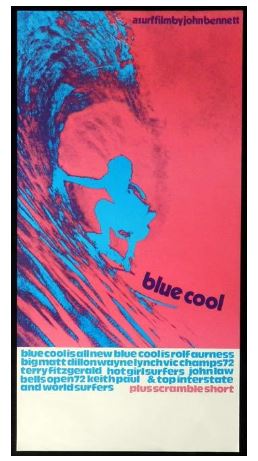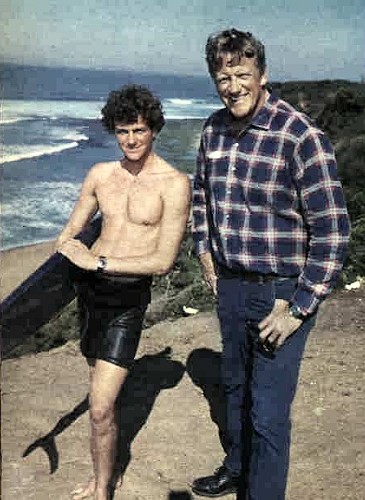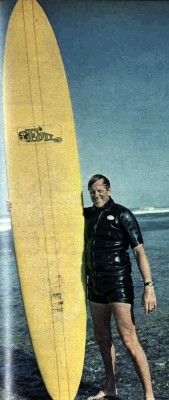Eddie Palmieri – Condiciones Que Existen
M.C Flex & The FBI Crew – Rockin’ It
The Replacements – Go
Mad Season – I Don’t Wanna Be a Soldier
Peter Thomas Sound Orchestra – The Big Boss Intro
From Screenrant.com…
The Big Boss was Bruce Lee’s breakout role and the movie that started him down the road to becoming a martial arts superstar. Directed by Lo Wei, it was the first of five kung fu movies that Lee made between 1971 to 1973. Lee starred in The Big Boss a few years after his show, The Green Hornet, ended.
In the 1971 Hong Kong film, Lee plays a young martial artist who goes to work at an ice factory with his cousins and becomes embroiled in a conflict with a local gang. For a while, Lee’s character tries to avoid fighting due to a vow that he made to his mother before her death. However, the events of the movie test his devotion to his pacifist lifestyle. Finally, he makes the hard decision to go against his beliefs and help his family fight off the villains. The movie culminates in an exciting showdown between the hero and his nemesis, portrayed by Han Ying-chieh.
The Big Boss marked a huge turning point in Lee’s career. While Lee was living in Los Angeles, his goal was to become a Hollywood star, but he was unable to find a studio willing to take a chance and cast him as a lead in one of their movies. During a trip to Hong Kong, Lee discovered that he had become famous there thanks in large part to reruns of The Green Hornet. It only aired for one season on ABC, but it was received rather well in Hong Kong because of Lee’s performance as Kato. Many in Hong Kong referred to it as “The Kato Show.”
The extra attention Lee received helped him enter into a negotiation with Shaw Brothers, the biggest studio in the kung fu movie industry. Feeling that the amount that they had offered him wasn’t enough, Lee turned down an opportunity to make movies with Shaw Brothers. Afterward, an appearance on a Hong Kong variety show caught the attention of Raymond Chow, a former Shaw Brothers producer who had left the company to form his own studio, Golden Harvest. Chow, having been impressed by Lee’s talents, convinced him to sign a three-movie deal.
After signing a contract with Golden Harvest, Lee was cast in The Big Boss, but not as the main character. Originally, it was James Tien who to have top billing. That changed though, when The Big Boss dropped Ng Kar-seung as its director and replaced him with Lo Wei. The director change led to Tien being relegated to a supporting role, and Lee becoming the star. The decision ended up being a winner for both Bruce Lee and Golden Harvest, as the movie proved to be a major success at the Hong Kong box office. It was followed up by more hits like Fist of Fury, Way of the Dragon, and Enter the Dragon. The Big Boss of course is far from Bruce Lee’s most famous film, but it’s a solid martial arts story and an important part of his legacy.
Hodges, James, Smith & Crawford – Nobody
Hodges, James, Smith (& Crawford) are one of the last great 70s girl groups to be compiled. The reason for the strange billing is that they were formed in 1970, had a release as Hodges, James & Smith, then as Love ‘N’ Stuff. Ex-Motown starlet Carolyn Crawford joined in late 1971 for two singles before departing amicably in late 1972, leaving Pat Hodges, Denita James and Jessica Smith to continue as a trio.
The early 45s are excellent and have long been admired, but the tracks found in the vault are superb and make this a must-buy for lovers of the girl soul group sound. Highlights include the two M’Pingo 45s when they were a quartet and the unissued dancers ‘Wishful Thinking’, ‘What Made You Think’, ‘Nothing Special In You’ and the sexy ‘In My Fantasy’. Pre-release plays of these at the 100 Club and on On-liners have been very well received indeed.
The girls were also great purveyors of powerful ballads such as in ‘Baby My Love Is Showing’, ‘I’m A Woman’ and ‘Never Meant To Be’. The songs and production are from Mickey Stevenson, Clarence Paul, Ronnie McNeir, Leon Ware, Ernie Shelby and other talented musicians from the Detroit and Los Angeles scenes of the early 70s.
Writers Rudy Calvo and A. Scott Galloway have conducted new interviews with Mickey Stevenson, Pat Hodges, Carolyn Crawford and Ronnie McNeir to tell the full story in the CD package. Carolyn Crawford has also supplied the only known photos of the group as a foursome.
Ady Croasdell – Ace Records Site
Other great stuff – Check out ACE RECORDS.
Mark Lanegan & Duke Garwood – Mescalito
Kevin Morby – Harlem River
Mikis Theodorakis – Main Title “Z”
Ray Charles – Ring of Fire
James Arness Surfing

The Farmer’s Daughter was meant to be his big break, but instead, James Arness opted for surfing breaks. The Minnesota native nabbed a role in the 1947 Loretta Young flick because it was about a Swedish-American woman. Arness had a knack for Scandinavian accents, so he ended up playing one of her brothers.
The towering Arness was new to Los Angeles, having headed west after recuperating from a war injury. A German machine gun had shattered the bones in his leg during the Battle of Anzio in Italy, back in ’44. The wound had left him with a shorter limb, slight limp, and lifelong pain. But his fascinating World War II experience is a story for another time.
After The Farmer’s Daughter hit theaters, Arness found casting calls far more crowded. Eager men were flooding Hollywood after the war. Competition was fierce. Arness retreated home to the Land of Lakes to visit his mom, who had recently married.
Arness drifted back to California, and took a job setting up bowling pins in an alley on Balboa Island, surfing in his off time. This was the summer of ’47. The lure of the waves became louder than his acting ambition. He forgot about booking roles. Instead, the 6′ 7″ guy headed south to San Onofre beach. He picked up odd jobs here and there, and collected unemployment checks that came to him following The Farmer’s Daughter. He slept in his car or on the beach. He followed the waves.
“Our mecca was San Onofre, and we named our fast-growing crowd the San Onofre Surf Club,” Arness wrote in his 2001 autobiography. “We just camped on the beach and spent a few days catching the big ones.”
San Onofre was on the land of Camp Pendleton, and U.S. Marines had beach houses along the shore. Arness and his surfing buddies began squatting in the unused Marine bungalows, dragging in furniture from a dump. Eventually, a Marine showed up and ordered the squatters to clear out in two hours. The Surf Club moved back outdoors but stayed on the beach, being sure to keep tidy. They shared bottles of Muscatel wine and idled.
“Just taking in the sun and surfboarding as we pleased was enough for us,” Arness recalled. “It was beautiful there, an unforgettable experience.”
One day, a car tore down the beach in haste, kicking up a cloud of sand. An old friend of Arness hopped out with a box of letters. He dumped a pile of fan mail on Arness, which had poured in following The Farmer’s Daughter.
“He chewed me out for wasting my time lying on the beach when I could be having a career in movies,” Arness said. “My beach bum friends had not known about my acting.”
This passionate pal, Ed Hampel, urged Arness to come with him to an audition. He landed a role in the play. The rest was history.
It wasn’t all for naught. Years later, in 1970, his son, Rolf Aurness (that’s the original spelling of the family name), became World Surfing Champion.


Pictures by Les Gorrie
